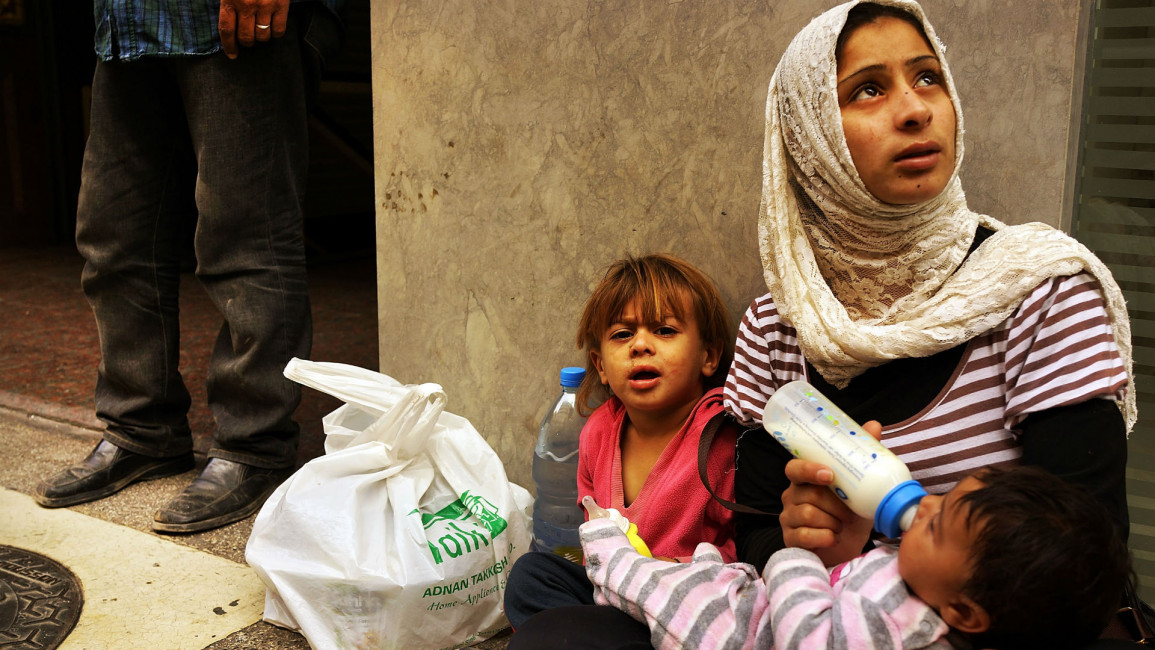
Syrian women take the flak of war
In 2012, a rapid assessment directed by the International Rescue Committee, an NGO that provides aid and development assistance to refugees, concluded that domestic violence was a primary threat to Syrian women in their host communities.
According to the report, behaviours in the household changed dramatically after displacement.
Changing roles
Women cited insecurity, anger and loneliness as their most common feelings.
Men expressed guilt for leaving their country being unable to fulfil their traditional role - protecting and providing for their family. In extreme cases, men lashed out at those around them - often their families and wives.
Fatma, a 38-year-old Syrian woman, fled with her family to Beirut three years ago after escaping the regime's campaign of indiscriminate bombing.
Her family managed to cope with the situation until her husband lost his job as a tailor last year. "He was never violent," Fatma told me. "But now he hits us with any object he can use."
The rupture of the family unit also places women and children at great risk. Separated from their partners, 25 percent of women are now heading a household alone.
Many are struggling to pay the rent and provide for the household, while trauma and stress has led some mothers to abuse their children.
| Syrian women cited insecurity, anger and loneliness as their most common feelings. |
Identifying strongly with their conventional gender role, some women forced to provide for their families have experienced anxiety about losing their sense of femininity.
Support networks
With few support networks available to them, some have resorted to prostiution for food, money or other items that could help their family.
Mahmoud, a "gang leader" in Bourj al-Bourajneh, a Palestinian refugee camp in south Beirut, said that he accepts sexual favours from Syrian women who request his help.
"Women always come to my bedroom," Mahmoud told me. "But I only help those whose situation I know is very bad."
A number of NGOs have designed programmes that provide psycho-social assistance for refugees. Although such initiatives have helped empower victims, only few are able to access them.
Fearing further harassment, one in three women taking refuge in Jordan voiced a reluctance to leave their house without a man.
In 2013, Oxfam reported how Syrian women commonly conduct fake phone calls with their dead husbands to avoid sexual harassment in public.
Limited legal status has also deterred many from crossing checkpoints to access help. Some families escaped Syria through irregular crossings, while others are unable to afford the high fees to renew their visa.
For those able to locate support, the double trauma from war and gender based violence remains an ongoing battle.
"I miss how things use to be," said Fatma, before leaving a recovery centre in the suburbs of Beirut. "I miss how my family used to live in Syria."
Opinions expressed in this article remain those of the author and do not necessarily reflect those of al-Araby al-Jadeed, its editorial board or staff.



